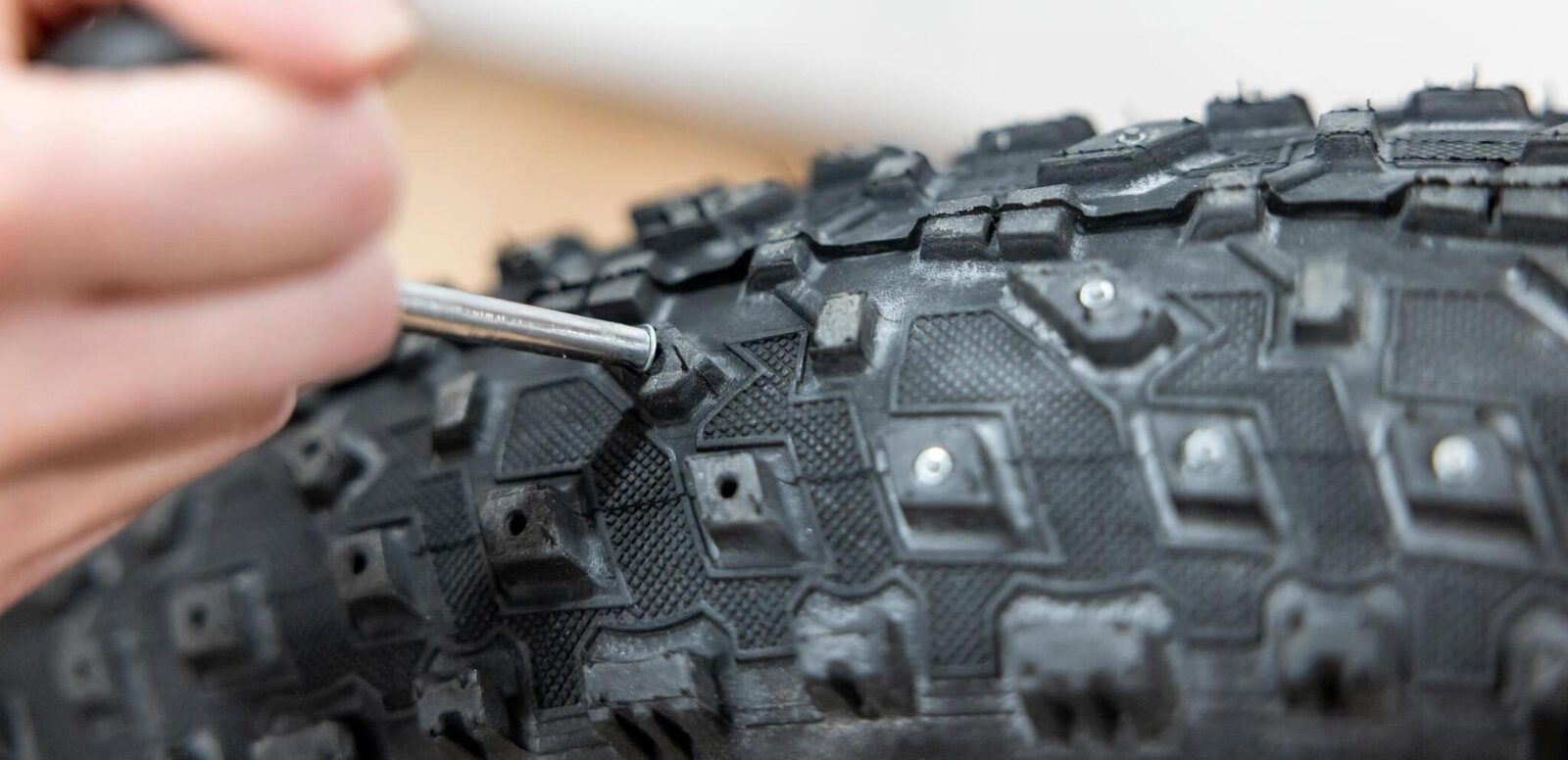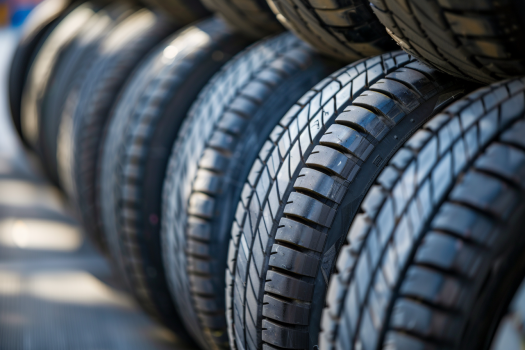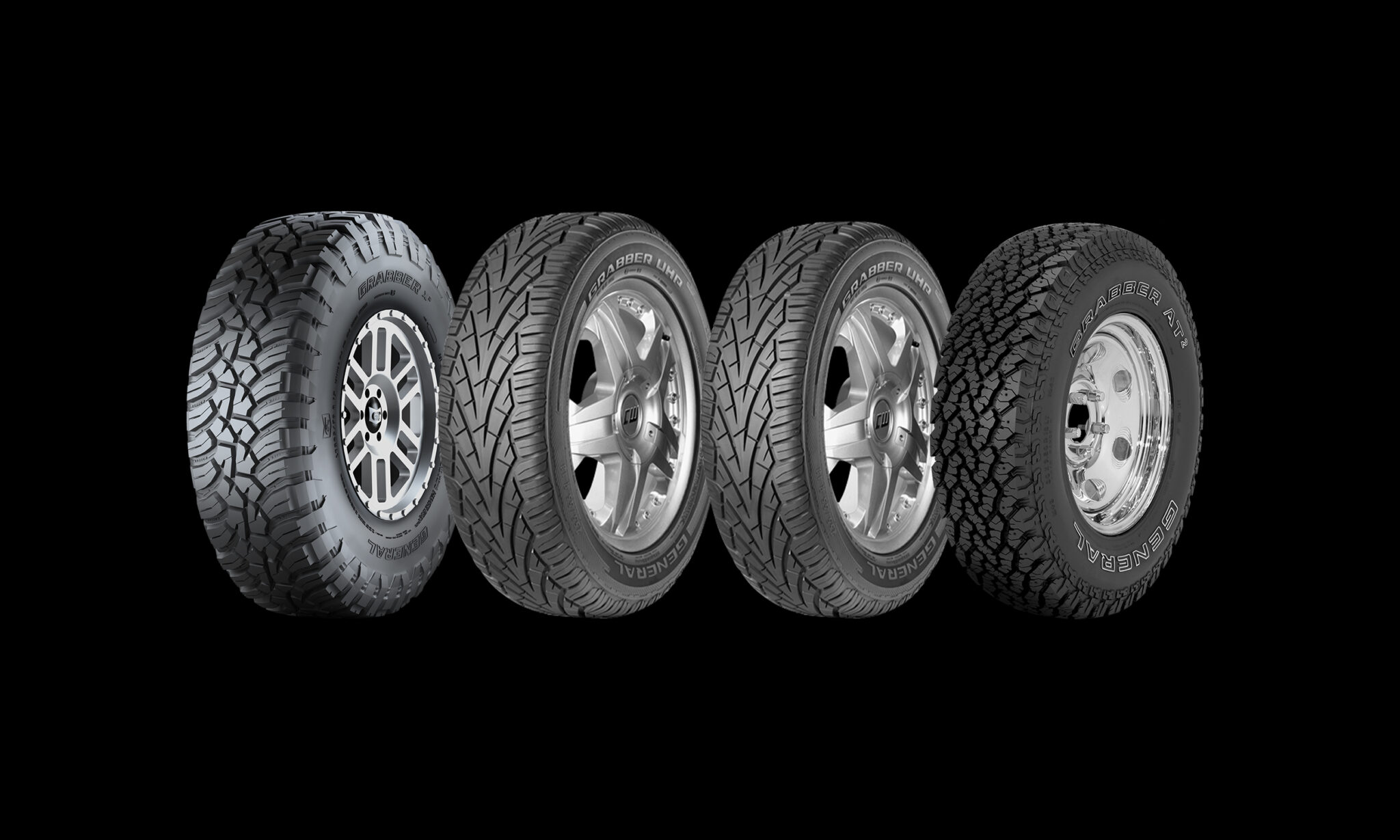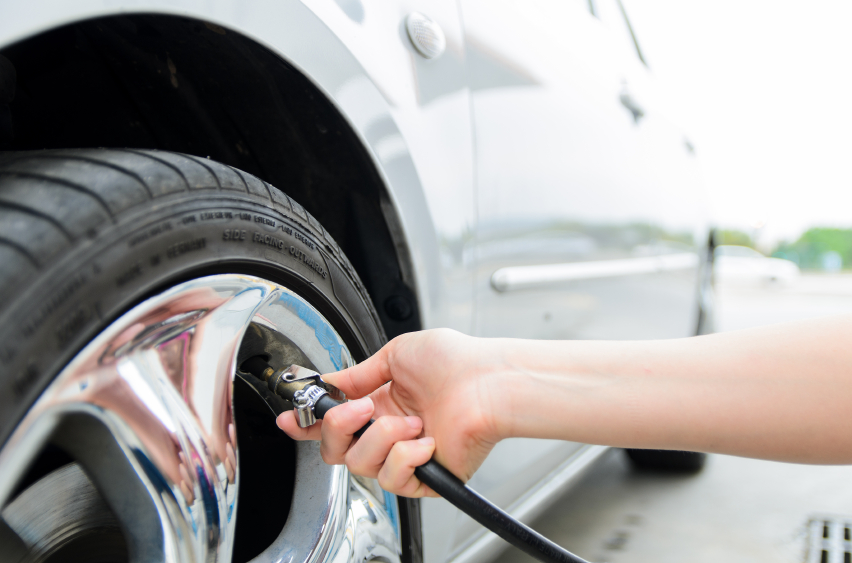Last Updated on April 21, 2024
Introduction to Electric Vehicle Tires(EV tires)
Electric vehicles (EVs) have revolutionized the automotive industry, bringing a new set of parameters for selecting the right tires. Electric vehicle tires are essential in delivering the performance, efficiency, and safety that EV drivers expect. Unlike traditional vehicles, Electric Vehicle Tires demand tires that can handle higher torque levels from a standstill, support heavier weights due to battery packs, and contribute to extending the vehicle’s range by minimizing rolling resistance.
As such, manufacturers have risen to the challenge, engineering tires that meet these unique requirements while ensuring a quiet, comfortable ride. With the proliferation of EVs on the road, understanding the significance of specialized EV tires is crucial for maximizing vehicle potential and sustainability. As we delve deeper, we’ll uncover the reasons behind the importance of selecting the right tires for electric vehicles and how they are designed to meet the unique demands of electric propulsion.
Importance of Selecting the Right Tires for EVs
Tires are a critical component for any vehicle. Still, when it comes to electric vehicles (EVs), the importance of selecting the right tire is amplified for several reasons.
- Firstly, the performance of an electric vehicle heavily depends on the quality and type of tires used. The right tires can enhance an EV’s acceleration, range, comfort, and handling. Given that electric vehicles deliver instant torque, the grip and traction offered by the tires are crucial to transferring this power efficiently to the road.
- Secondly, electric vehicles are generally heavier than their internal combustion counterparts due to the weight of the battery packs. This means that tires for EVs must be capable of handling increased loads without compromising performance or safety.
- Thirdly, tire rolling resistance becomes a more significant factor for electric vehicles. The lower the rolling resistance, the less energy is required to keep the car moving, which can result in a noticeable increase in range – a key concern for EV owners. Selecting a tire with low rolling resistance can contribute to more efficient energy consumption and longer battery life.
- Moreover, tire longevity and durability are of particular concern for EV owners. Tires that wear out quickly may lead to frequent replacements, higher running costs, and increased environmental impact due to the disposal of used tires.
- Lastly, the acoustics within an EV are different, with the absence of engine noise highlighting the sound generated by tires on the road. This makes choosing a tire that minimizes noise significant for maintaining the quiet, smooth driving experience that electric vehicles are known for.
Unique Demands of Electric Vehicles on Tires
The design and construction of tires for electric vehicles have to address several unique demands.
- Instant Torque Delivery: EVs deliver maximum torque at zero RPM, unlike combustion engines that build up torque gradually. This characteristic of electric motors can lead to faster tire wear if the tires are not designed to cope with the immediate torque application.
- Increased Vehicle Weight: The battery packs that power EVs are heavy. Therefore, electric vehicle tires need to have a higher load-carrying capacity. They must maintain structural integrity and performance despite the additional weight they must support.
- Energy Efficiency and Range: For EVs, efficiency is measured regarding power consumption and how far the vehicle can travel on a single charge. Tires with low rolling resistance reduce the energy required from the battery to move and maintain the vehicle’s motion, thereby extending the vehicle’s range.
- Tread Patterns and Compounds: EV tires’ tread patterns and compounds may differ from conventional tires. The rubber compounds need to be optimized for grip yet durable enough to resist the wear from the high torque. The tread patterns are often designed to minimize road noise, which can be more noticeable in the near-silent operation of EVs.
- Regeneration and Braking: EVs typically use regenerative braking systems that stress the tires differently than traditional braking systems. This requires tire designs that can handle the unique patterns of wear and anxiety associated with regenerative braking.
In conclusion, selecting tires for electric vehicles involves a comprehensive understanding of the EV tire’s characteristics and driving dynamics. Manufacturers continually innovate in tire technology to provide EV-specific tires that meet these unique demands, ensuring that electric vehicles’ safety, performance, and efficiency are maximized. As the EV market grows, the development of tires that cater specifically to these vehicles will continue to be an essential area of focus for tire manufacturers and vehicle designers alike.
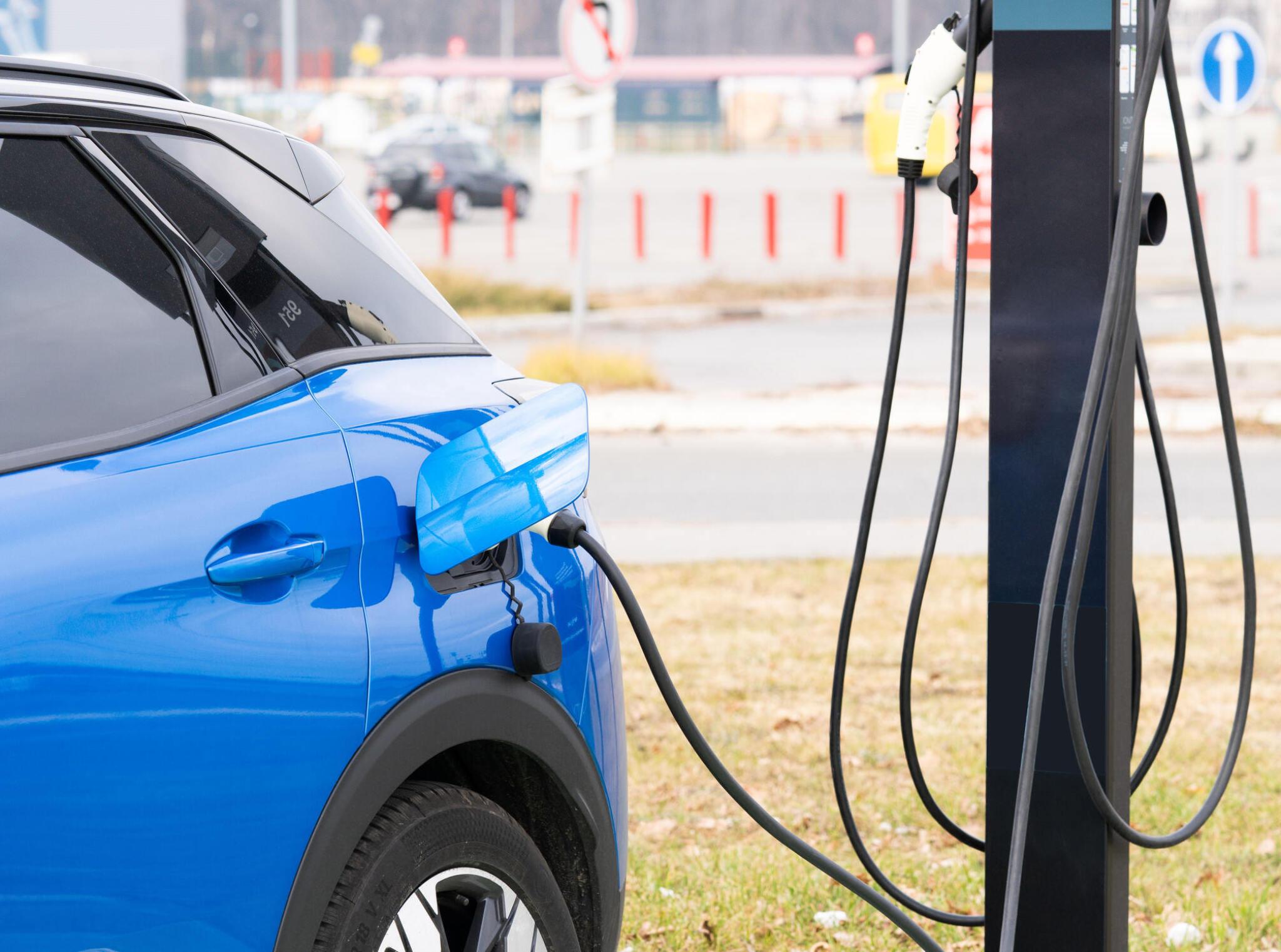
Understanding Tire Specifications for Electric Vehicles
- Tire Size and Profile
- Load Index and Speed Rating
- Rolling Resistance and Efficiency
- Noise Reduction Features
- Understanding Tire Specifications for EVs
Tire Size and Profile
When selecting tires for electric vehicles (EVs), understand the tire size and profile. The tire size for EVs is usually found on the tire’s sidewall. It is represented by a series of numbers and letters that indicate the tire’s width, aspect ratio, and diameter.
- Width: The first three-digit number in the size indicates the tire’s width in millimeters from sidewall to sidewall. A wider tire can provide better stability and handling but may also increase rolling resistance.
- Aspect Ratio: Following the slash after the width is the aspect ratio, a two-digit number representing the height of the tire’s cross-section to its width. A lower aspect ratio, often seen on performance tires, means a shorter sidewall and usually results in better handling and cornering ability. Higher aspect ratios contribute to a more comfortable ride but may affect handling.
- Diameter: The last number, typically following an “R,” is the diameter of the wheel in inches that the tire is designed to fit.
Choosing the correct tire size and profile for an EV is not just about fitment but also affects the vehicle’s overall dynamics, including handling, range, and efficiency.
Load Index and Speed Rating
The load index and speed rating are critical safety features that must be appropriate for the weight and potential speeds of an EV.
- Load Index: This numerical code is associated with the maximum load a tire can carry at the speed indicated by its rating. Due to their heavier weight from the battery packs, EVs often require tires with a higher load index than those needed for similar-sized combustion engine vehicles.
- Speed Rating: Represented by a letter, the speed rating indicates the maximum speed at which the tire can carry a load corresponding to its load index. While EVs are known for quick acceleration, they are not necessarily designed for high-speed driving. Therefore, the speed rating for an EV tire doesn’t need to be as high as a high-performance sports car but should still match the vehicle’s top speed capabilities.
Adhering to the specified load index and speed rating is imperative for the safety and performance of EV tires. Underinflated or overloaded tires can lead to tire failure and potentially dangerous driving conditions.
Rolling Resistance and Efficiency
Rolling resistance refers to the energy a tire needs to keep moving on the road. It is a critical factor for the efficiency and range of an EV.
- Low Rolling Resistance: Tires with low rolling resistance improve fuel efficiency in conventional vehicles and increase the range of EVs. The tire’s tread, sidewall construction, and rubber compounds contribute to rolling resistance. EV tires are designed to optimize these components to reduce energy consumption.
- Energy Efficiency: Tires can account for up to 20% of a vehicle’s energy consumption due to rolling resistance. For EVs, reducing this resistance means that less battery power is used to travel the same distance, making the vehicle more efficient.
Manufacturers often use specialized materials and construction techniques to lower the rolling resistance in EV tires, contributing to the vehicle’s more extended range on a single charge.
Noise Reduction Features
Electric vehicles are much quieter than traditional ones, meaning tire noise can be more noticeable in an EV.
- Noise Reduction: EV tires often incorporate features that reduce road noise, creating a more comfortable and quiet ride. This can include specialized tread patterns or noise-dampening technologies within the tire.
- Acoustic Comfort: Some tire manufacturers have developed foam liners or other materials that absorb sound waves and reduce the noise entering the vehicle’s cabin. This technology benefits EVs, where the lack of engine noise means that other forms of noise are more pronounced.
The specifications and features of EV tires are tailored to meet the unique demands of these vehicles. From the size and profile to load index, speed rating, rolling resistance, and noise reduction features, each aspect plays a significant role in electric vehicles’ safety, performance, and overall driving experience. As the market for EVs continues to expand, tire manufacturers are investing in research and development to improve these specifications, further enhancing the capabilities and appeal of electric mobility.
The Best Tire Types for Electric Vehicles
All-Season Tires
All-season tires are designed to provide balanced performance in various conditions, including wet roads and light winter driving. They are a popular choice for electric vehicle (EV) drivers due to their versatility.
Pros and Cons
Pros:
- Versatility: All-season tires suit various weather conditions, from dry to wet to light snow.
- Cost-effective: They can be more economical than buying separate summer and winter tires.
- Convenience: Eliminates the need for seasonal tire changes.
Cons:
- Compromise: While they handle a variety of conditions adequately, they are not specialized for extreme weather like heavy snow or scorching climates.
- Performance: It may not provide the same level of performance in grip and cornering as summer or performance tires in warm weather.
Top All-Season Tires for EVs
Manufacturers have developed all-season tires that cater specifically to the unique requirements of EVs, with options such as the Michelin Cross Climate+ and the Goodyear Assurance weathered and ready being noted for their low rolling resistance and durability under the added weight of electric vehicles.
Performance Tires
Performance tires are designed for high-speed handling and can be a great addition to the sportier EVs designed with performance in mind.
Benefits for High-Performance EVs
- Enhanced Handling: Better grip and responsive steering at higher speeds.
- Improved Traction: Optimized for maximum road contact, offering superior traction during acceleration.
- High-Speed Stability: Constructed to remain stable and secure at higher velocities.
Leading Performance Tires for EVs
Some of the leading options in the performance tire category for EVs include the Pirelli P Zero and the Michelin Pilot Sport 4, which offer excellent dry and wet traction while accommodating electric vehicles’ unique torque and load characteristics.
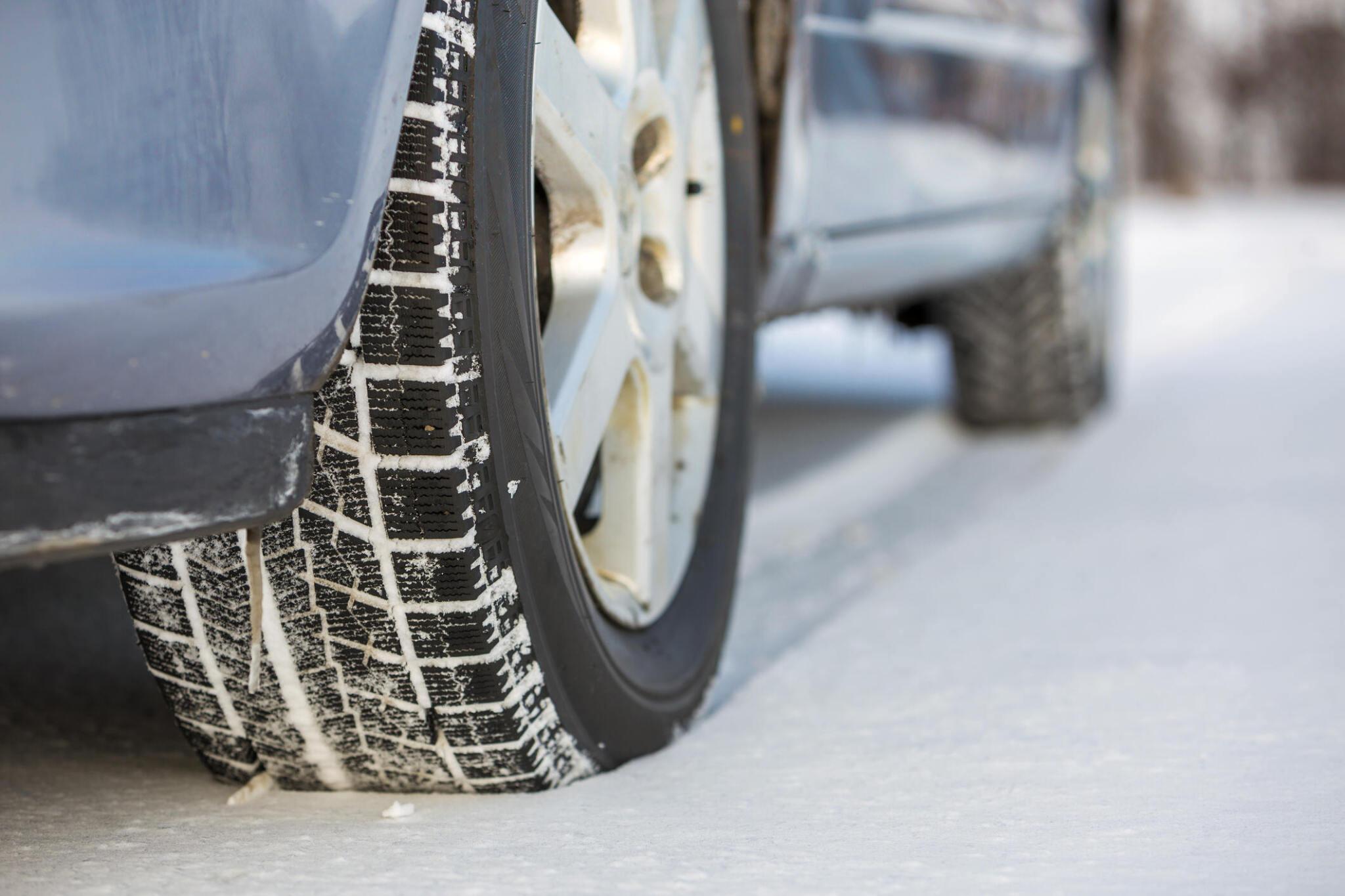
Winter Tires
Winter tires are designed to perform in winter conditions, including snow, ice, and cold temperatures. Maintaining efficiency with the right tires is critical for EVs, which can experience reduced range in cold weather.
Importance for Cold Weather Conditions
- Improved Safety: Specialized tread designs and rubber compounds that stay flexible in cold temperatures provide superior grip and braking performance on snow and ice.
- Maintained Efficiency: Help counteract the reduced battery performance in cold weather by ensuring that the increased rolling resistance from snow and slush does not further decrease range.
Best Winter Tires for Electric Vehicles
The Bridgestone Blizzak WS90 and the Michelin X-Ice Xi3 are among the top winter tires that can provide the traction and stability needed for EVs in harsh winter conditions while offering low rolling resistance.
Eco-Friendly Tires
Eco-friendly tires are designed with materials and manufacturing processes that aim to reduce environmental impact, and they often feature lower rolling resistance for enhanced vehicle efficiency.
Features and Benefits
- Sustainable Materials: Made with renewable materials and designed to minimize environmental impact.
- Energy Efficiency: Lower rolling resistance for an extended driving range.
- Longevity: Often created to wear down more slowly, resulting in fewer tire changes and less waste over time.
Top Eco-Friendly Tires for EVs
Noteworthy eco-friendly tires include the Michelin Energy Saver A/S, which boasts an extended tread life and excellent fuel efficiency, and the Yokohama BluEarth-A, known for its outstanding fuel-saving capabilities and use of environmentally friendly materials.
In selecting the best tires for an electric vehicle, it’s crucial to consider the driving conditions, the performance characteristics of the EV, and the driver’s priorities, whether it’s year-round versatility, high performance, winter safety, or environmental sustainability. As the EV market evolves, tire manufacturers continue to innovate, providing a more comprehensive range of options tailored to meet the specific needs of electric vehicles.
Comparing Tire Brands and Models
Not all brands and models are created equal when equipping an electric vehicle (EV) with the right tires. Given the unique requirements of EVs, from heavier curb weights to immediate torque delivery, choosing the right tire can substantially impact performance, range, and safety.
Criteria for Comparison
The following criteria are essential when comparing tire brands and models for EVs:
- Rolling Resistance: A lower rolling resistance means higher efficiency and extended range, which is crucial for battery-powered vehicles.
- Tire Longevity: Due to the increased weight of EVs, tires may wear out faster; therefore, longevity is a crucial factor.
- Load Capacity: EV tires need to have a suitable load rating to safely carry the vehicle’s weight, especially with the added heft of the battery pack.
- Traction and Handling: Tires should provide reliable grip and handling to cope with the instant torque characteristic of electric motors.
- Noise Level: With the absence of engine noise in EVs, tire noise can be more noticeable, hence the importance of choosing a quieter tire.
- Price: Considering the cost-effectiveness over the tire’s lifespan is essential due to the premium pricing of some tires suited for EVs.
Reviews of Popular Tire Brands for EVs
Several tire brands have garnered attention for producing EV-friendly tires that meet the criteria above:
- Michelin: Known for producing tires that balance low rolling resistance and high performance. Their Energy Saver A/S line is often praised for its efficiency and durability.
- Continental: Offers tires like the ProContact series that provide good all-season performance and have low rolling resistance, designed for EVs.
- Goodyear: The Assurance line of tires from Goodyear is often noted for providing a quiet ride and efficient performance suitable for electric vehicles.
- Pirelli: With a focus on performance, Pirelli’s tires, such as the P Zero line, are recognized for handling and grip and are well-suited for high-performance EVs.
Unveiling the Unique Features of Leading Tire Brands
Here are introductions and unique features for the four mentioned tire brands, focusing on their products that may be relevant for electric vehicles (EVs).
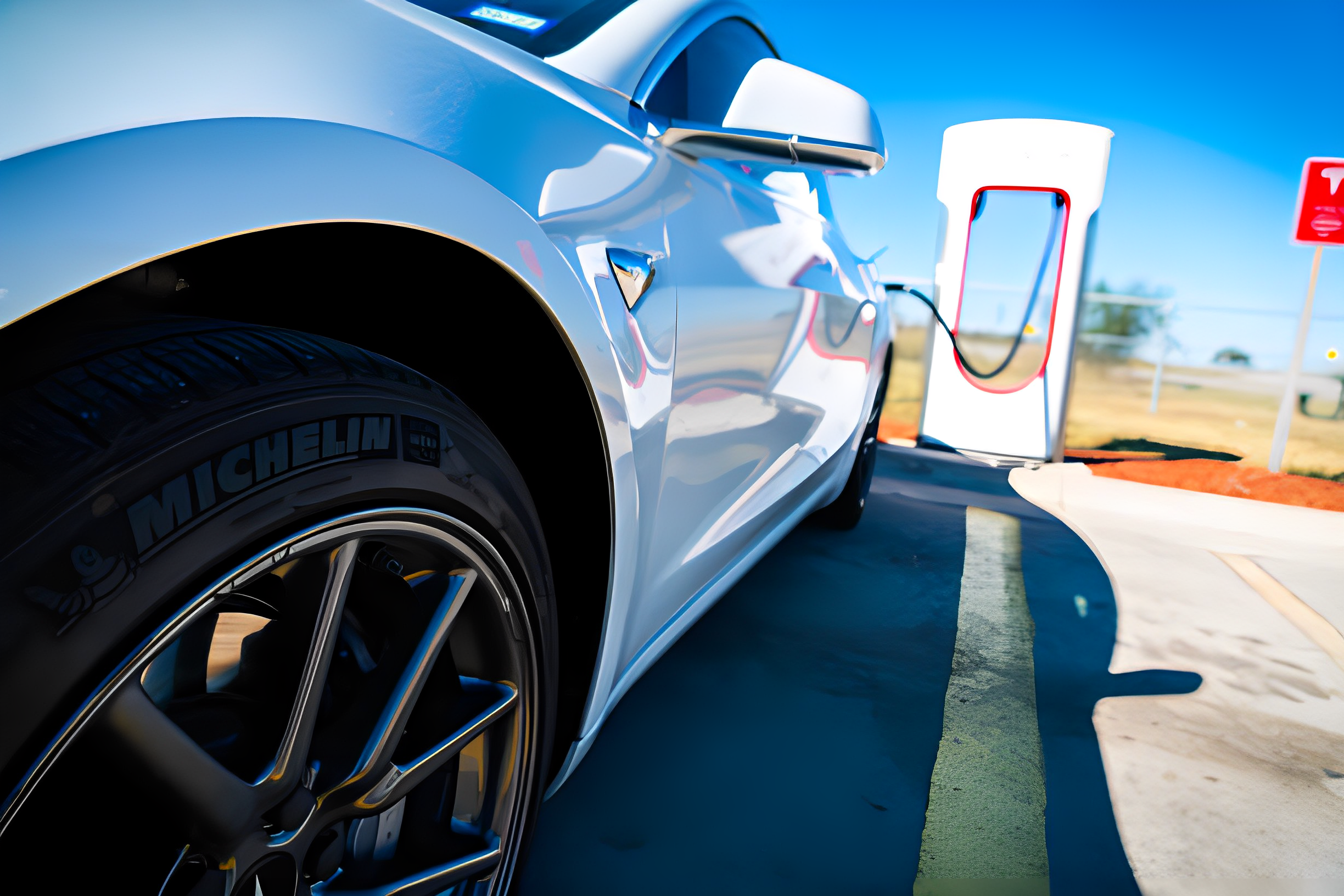
1) Michelin:
Michelin is a globally recognized tire brand committed to innovation and quality. With a strong presence in the EV market, Michelin designs tires that enhance the performance and efficiency of electric vehicles, ensuring a blend of safety, longevity, and energy efficiency.
Unique Features:
- Energy Saver Construction: Reduces rolling resistance for increased electric range.
- Total Performance Technology: Balances durability, wet grip, and energy efficiency.
- Acoustic Technology: Reduces interior noise, complementing the quiet EV ride.
- Green X Labeling: Marks tires that have a high level of energy efficiency.
- Advanced Silica Tread Compounds: Improves grip without compromising tire life.
- Reinforced Sidewalls: Support the additional weight of EV batteries.
- Michelin Primacy EV-Specific Design: Optimized for the unique demands of electric vehicles.
- Low Rolling Resistance: Aids in achieving better mileage and longer battery life.
- High-Traction Tread Patterns: Enhance handling and safety on wet roads.
- Self-Sealing Technology: Available in some models for puncture resistance.
2) Continental:
Continental is one of the leading pioneers in automotive tire technology, offering a wide range of tires catering to various segments, including electric vehicles. The brand emphasizes safety, performance, and eco-friendliness in its tire designs.
Unique Features:
- EcoContact Series: Tailored for fuel economy and low rolling resistance.
- ContiSilent Technology: Reduces noise for a quieter driving experience.
- ContiSeal Technology: Offers self-sealing capabilities for punctures.
- Electric Traction Compound: Specially formulated for the torque of EVs.
- ContiAdapt: Adapts to road conditions for safety and efficiency (concept tires).
- Taraxagum Initiative: Incorporates dandelion rubber to reduce environmental impact.
- High Performance in Wet Conditions: Ensures safety during rainy weather.
- Reinforced Structures: Cope with the additional weight of EVs.
- Enhanced Durability: Long-lasting tread life to match extended EV battery life.
- Conti.eContact: Specifically designed for electric and hybrid vehicles.
3) Goodyear:
Goodyear is one of the world’s most iconic tire brands, offering advanced tire solutions for various vehicles, including electric cars. The company incorporates innovative technologies to improve fuel economy, reduce environmental impact, and enhance performance.
Unique Features:
- SoundComfort Technology: Minimizes noise for a quieter ride in EVs.
- EfficientGrip Performance: For EVs, designed with an emphasis on low rolling resistance.
- Durawall Technology: Increases the tire’s resistance to cuts and punctures.
- Active Braking Technology: Improves stopping distances on wet and dry roads.
- Electric Drive Technology: Made to handle instant torque and heavier loads of EVs.
- Assurance MaxLife: Tread designed to extend the tire’s life.
- Weather Reactive Technology: Adapts to seasonal conditions for all-year usability.
- Fuel-Saving Tread Compound: Enhances fuel efficiency by reducing energy loss.
- EV Specific Markings: Easy identification for tires suitable for electric vehicles.
- Aerodynamic Sidewall Design: Helps to reduce drag and thus improve battery range.
4) Pirelli:
Pirelli is renowned for its high-performance tire solutions, often associated with luxury and sports car segments. The brand has also ventured into the electric vehicle space, engineering tires that cater to modern EVs’ performance and efficiency needs.
Unique Features:
- Pirelli Noise Cancelling System (PNCS): Reduces cabin noise, benefiting the silent nature of EVs.
- Elect Marking: Identifies tires specifically developed for electric and plug-in hybrid vehicles.
- Low Rolling Resistance: Aids in preserving battery life and extending range.
- Seal Inside Technology: Allows you to keep driving after a puncture.
- High Mileage Compound: Ensures long tread life even with the high torque of EVs.
- Perfect Fit Strategy: Tires developed for specific EV models for optimal performance.
- Wet Grip Focus: To ensure safety in adverse weather conditions.
- High-Performance Materials: Designed to maintain integrity under electric vehicle demands.
- Cyber Tire Technology: Smart tire capabilities with the potential for data gathering and interaction with vehicle systems.
- Scorpion Verde All Season Plus II: EVs requiring premium crossover/SUV tires with all-season capabilities.
Model-Specific Recommendations
Different EVs might require other tire specifications and features for optimal performance.
Tires for Tesla Vehicles
Tesla’s performance models benefit from high-performance tires like the Michelin Pilot Sport 4. In contrast, their more range-focused models may see better efficiency with the Michelin Primacy MXM4, which offers a lower rolling resistance.
Tires for Nissan Leaf
For the Nissan Leaf, a standard recommendation is the Bridgestone Ecopia EP422 Plus, which emphasizes reduced rolling resistance for increased range and is durable enough to handle the Leaf’s weight.
Tires for Chevrolet Bolt EV
The Chevrolet Bolt EV can be outfitted with something like the Michelin Energy Saver A/S for those prioritizing range or the Continental PureContact LS for drivers who want a mix of efficiency and all-season traction.
It’s also important to note that some EV manufacturers have partnered with tire manufacturers to develop vehicle tires that are designed. These OEM (Original Equipment Manufacturer) tires are often a safe bet for drivers who want to maintain the driving characteristics the car was initially intended to deliver.
When comparing tire brands and models for EVs, it’s imperative to consider how each tire’s characteristics will interact with the vehicle’s specific performance profile and the typical driving conditions it will face.
Reviews and user experiences can provide valuable insights into real-world performance, but always check the manufacturer’s specifications and guidelines to ensure compatibility and safety. As the EV market grows, tire companies will likely expand their offerings to cater to this specialized segment, providing even more options for EV drivers.

Innovative Technologies in EV Tires
The evolution of electric vehicles (EVs) is driving innovation in tire technology. Tires for EVs are not only about rubber meeting the road; they are becoming an integral part of the vehicle’s technology ecosystem, with advancements that promise to increase safety, efficiency, and durability.
Airless Tires and Their Future
Airless tires, also known as non-pneumatic tires (NPT), are a revolutionary concept that could soon become mainstream for electric vehicles. These tires are designed to be puncture-proof, offering numerous potential benefits, including:
- Durability: Without maintaining air pressure, airless tires are less prone to wear from over- or under-inflation.
- Safety: They eliminate the risk of blowouts and punctures, increasing safety for drivers.
- Maintenance: Airless tires require less routine maintenance than traditional tires.
- Environment: These tires are potentially more recyclable than traditional tires, fitting well with the eco-friendly ethos of electric vehicles.
Companies like Michelin and Bridgestone are actively developing airless tire technologies. Michelin’s UPTIS (Unique Puncture-proof Tire System) and Bridgestone’s concept of air-free commercial tires are examples of where this technology is heading. These tires are not widely available yet, but their development indicates a significant interest in changing how we think about EV tires in the future.
Innovative Tires with Sensors for EVs
Innovative tires are embedded with sensors that provide real-time data on tire health and road conditions. This technology is particularly beneficial for EVs for the following reasons:
- Performance Monitoring: Sensors can track tire pressure, temperature, tread wear, and load, allowing for adjustments to driving style and vehicle settings to optimize performance and range.
- Predictive Maintenance: By monitoring tire condition, innovative tires can alert drivers to the need for tire servicing or replacement before it leads to more significant issues.
- Integration with Vehicle Systems: Data from tire sensors can be integrated with EV management systems to adjust power delivery based on grip levels or to manage battery life more effectively.
- Enhanced Safety: The ability to detect and respond to changing road conditions can improve the safety features of an EV, such as adjusting ABS and traction control settings in real-time.
Goodyear, for example, has showcased its intelligent tire prototype that includes a cloud-based algorithm to process data sent from tire sensors, potentially integrating with vehicle control systems for enhanced performance.
Advanced Materials and Tread Design
Advancements in materials and tread design are also playing a pivotal role in the development of EV-specific tires:
- Eco-Friendly Materials: Manufacturers increasingly use sustainable materials such as synthetic rubbers, silica-reinforced tread compounds, and bio-oils in their tires. These materials help to reduce rolling resistance and improve the overall carbon footprint of the tire production process.
- Low Rolling Resistance: Tires with advanced silica compounds and tread designs are being developed to minimize rolling resistance, which is vital for maximizing the range of EVs.
- Tread Design for Noise Reduction: The absence of engine noise in EVs has led to the need for quiet tires. Manufacturers are utilizing advanced tread designs and noise-cancellation technologies to reduce acoustic levels.
- Thermal Management: Tires designed with advanced materials can better manage the heat generated by the constant torque of electric motors, prolonging tire life and enhancing safety.
Advanced materials and tread designs are used in products like the Continental EcoContact series, which focuses on reducing rolling resistance and improving mileage without sacrificing safety or comfort.
As tire manufacturers continue to innovate, the future for EV tires looks promising with technologies that cater to the unique demands of electric drivetrains and push the boundaries of what’s possible in terms of performance, safety, and sustainability.
Maintenance Tips for EV Tires
Proper maintenance is critical for ensuring the longevity, performance, and safety of electric vehicle (EV) tires. Due to the unique characteristics of EVs, such as heavier weight and instant torque, tires may experience different wear patterns compared to those on internal combustion engine vehicles. Here are essential maintenance tips to keep EV tires in top condition.
Regular Inspection and Rotation
- Inspection: Frequent visual inspections can catch early signs of wear or damage. Check for cuts, punctures, bulges, or any objects lodged in the tread. Ensure sidewalls are free from damage and abrasions.
- Rotation: Tire rotation should be performed approximately every 5,000 to 7,500 miles, as most tire manufacturers and vehicle makers recommend. Since
- weight distribution in EVs can be different due to the placement of the battery pack; rotation is essential for even tread wear.
- Alignment and Balancing: Check wheel alignment and balance regularly. Misalignment can cause uneven wear and reduce the handling performance of the vehicle. It’s also a good practice to have your wheels balanced during tire rotation to prevent vibrations and uneven wear.
Monitoring Tire Pressure
- Pressure Checks: Tires should be checked at least once a month for proper inflation. EV tires may require different pressure settings than conventional vehicles, so refer to the manufacturer’s specifications.
- Impact on Range: Properly inflated tires can reduce rolling resistance, directly affecting the vehicle’s range. Under-inflated tires can lower the field by increasing the energy required to move the car.
- Use of TPMS: Many EVs come equipped with a Tire Pressure Monitoring System (TPMS), which alerts the driver to significant changes in tire pressure. Although TPMS is an excellent tool, it is not a substitute for manual pressure checks, as it often warns only when the pressure is significantly low. Despite this valuable technology, it’s still essential to conduct regular manual checks to ensure each tire is at the optimal pressure. Here are more detailed reasons why:
- Precision: TPMS systems are designed for general monitoring and may not provide the most accurate reading. Manual checks with a reliable gauge can offer more precise measurements, allowing for fine adjustments that optimize performance and range.
- Seasonal Adjustments: Tire pressure can fluctuate with temperature changes. Cold weather can reduce stress, while hot weather can increase it. Regular manual checks are crucial, significantly when seasons change, to adjust the tire pressure accordingly and maintain the correct inflation level.
- Safety: Maintaining correct tire pressure is not just a matter of efficiency; it’s also a significant safety concern. Over- or under-inflated tires can affect the vehicle’s handling, potentially leading to increased braking distances, reduced traction, and an increased likelihood of tire failure.
- Even Wear: Consistently maintaining the correct tire pressure helps ensure that tires wear evenly. This not only extends the life of the tires but also keeps the handling characteristics of the EV, which is particularly important for maintaining stability and efficiency.
- Pre-emptive Action: Regular manual checks can sometimes detect slow leaks that TPMS might not immediately identify. Catching a slow leak early can prevent a flat tire and a possible roadside emergency.
In conclusion, while TPMS provides a valuable safety net by alerting drivers to significant pressure loss in EV tires, it does not replace the need for regular manual tire pressure checks. By maintaining the proper tire pressure, EV owners can ensure their vehicle operates with optimal efficiency, range, and safety. Regular, manual tire pressure checks should be an integral part of any EV owner’s maintenance routine.
Tread Wear and Replacement Indicators
Proper tire maintenance is crucial for the safety and performance of any vehicle, and this is particularly true for electric vehicles (EVs), which place unique demands on their tires. One of the critical aspects of tire maintenance is monitoring tread wear and understanding when tires need to be replaced. Here, we’ll explore the indicators that signal tread wear and the need for tire replacement.
Tread Depth
- Legal Requirements: The legal minimum tread depth in the United States is 2/32 of an inch. Driving on tires with tread worn down past this point can significantly increase the risk of accidents due to reduced traction, especially in wet conditions.
- Measurement Techniques: A tread depth gauge is designed to measure tire tread depth. Another standard method is the penny test, where a penny is inserted into the tread groove with Lincoln’s head upside down. If you can see all of Lincoln’s head, it’s time to replace the tire.
- Manufacturer Indicators: Many tires have built-in tread wear indicators—raised sections spaced intermittently in the bottom of tread grooves. When the tread is worn down to the level of these indicators, it’s a clear sign that the tires need to be replaced.
Wear Patterns
- Even Wear: Regular checks can reveal if the tires are wearing evenly across their width. Even wear indicates that tires are properly inflated and the vehicle is aligned correctly.
- Irregular Wear: If the tires show uneven wear, such as more wear on one side of the tire, it could indicate issues with alignment, suspension components, or improper inflation.
- Center vs. Shoulder Wear: Wear in the center of the tire often suggests over-inflation, while wear on the shoulders (edges) of the tire could indicate under-inflation.
Replacement Indicators
- Age of Tires: Even if the tread is not worn down, tires should be inspected regularly and typically replaced every six years, as recommended by tire manufacturers, due to the degradation of rubber compounds over time.
- Visual Damage: Look for signs of cracking, cuts, bulges, or other damage. Damage to the sidewall or tread can weaken the tire structure and increase the risk of tire failure.
- Performance Issues: Any noticeable performance issues such as vibrations, pulling to one side, or changes in driving dynamics can be indicators of tire problems.
- Post-Repair Condition: If a tire has been repaired due to a puncture, it’s essential to monitor it closely. Repeated or extensive repairs can affect the structural integrity of the tire.
Importance of Timely Replacement
- Safety: Worn tires significantly compromise the vehicle’s safety by impacting braking distances, handling, and the risk of hydroplaning on wet roads.
- Efficiency: For EVs, efficiency is paramount. Worn tires can increase rolling resistance, reducing the vehicle’s range on a single charge.
- Driving Experience: Good tires are fundamental to the driving experience, providing comfort, stability, and performance. As EVs are generally quieter, tire noise can be more noticeable, and new tires produce less noise than worn ones.
In summary, staying vigilant about tire tread depth and wear patterns is essential for maintaining the performance and safety of electric vehicles. By regularly checking these indicators and understanding the appropriate time to replace tires, EV owners can ensure their car continues to operate efficiently and safely. Always refer to the vehicle’s manufacturer guidelines and consult with a tire professional when assessing tire condition and making decisions about tire replacement.
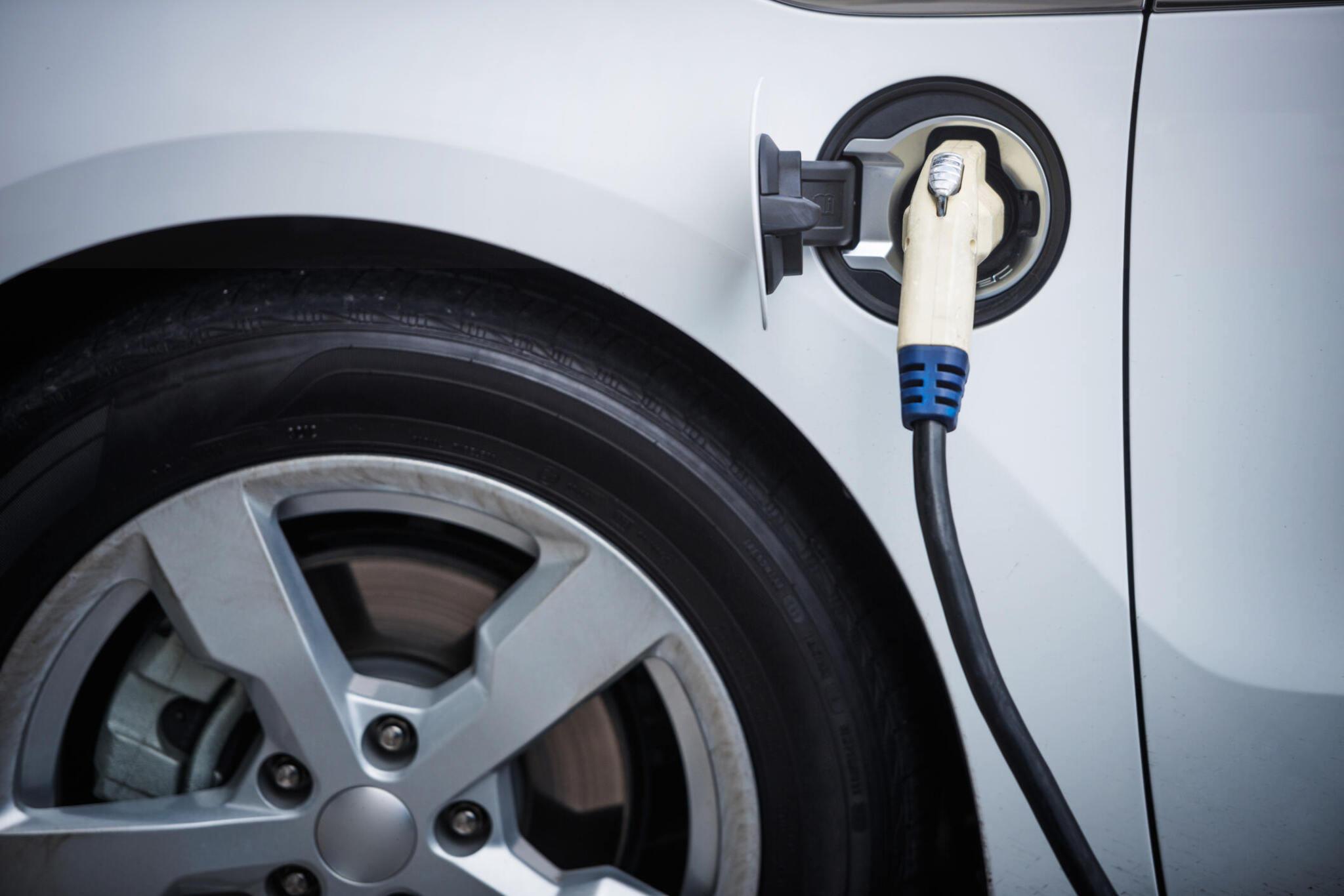
Impact of Tires on Electric Vehicle Performance
The performance of electric vehicles (EVs) is inextricably linked to the quality and condition of their tires. As the only point of contact between the car and the road, tires are crucial in determining an EV’s efficiency, driving dynamics, and overall safety. Below, we explore the various ways in which tires impact EV performance.
Tires and Battery Range
- Rolling Resistance: The energy an EV uses to maintain motion is significantly affected by the rolling resistance of its tires. Lower rolling resistance means less energy is required to keep the vehicle moving, translating to a more extended battery range. Tires designed for EVs often focus on reducing rolling resistance without compromising other performance factors.
- Weight and Reinforcement: Due to the additional weight of the batteries, EV tires often need to be more robust than those for internal combustion engine vehicles. However, increased robustness can lead to greater weight, which might negatively impact the range. Manufacturers work to balance durability and tire weight to optimize content.
- Tire Pressure: Maintaining the correct tire pressure is paramount for EVs, as under-inflated tires increase rolling resistance, while over-inflation can lead to reduced traction. Both scenarios can reduce the range and overall efficiency of the vehicle.
Handling and Ride Comfort
- Tire Composition: The tread compound of an EV tire influences its grip, handling, and comfort. Softer compounds usually provide better grip and handling but may wear out faster, potentially reducing range over time. More complex compounds may last longer and favor range but can sacrifice some grip.
- Sidewall Stiffness: The stiffness of a tire’s sidewalls affects both handling and ride comfort. Stiffer sidewalls can improve handling by providing better lateral stability, particularly important in heavier EVs, but may also transmit more road imperfections into the cabin, reducing ride comfort.
- Noise Reduction: EVs are quieter than their combustion counterparts, making tire noise more noticeable. Modern EV tires often incorporate design features to minimize noise, providing a more comfortable and premium driving experience.
Safety Considerations
- Traction: The instant torque characteristic of electric motors demands tires that can provide immediate grip to translate this power into smooth acceleration. The quality of the tire’s traction also influences braking performance, an essential safety aspect.
- Wear Patterns: Because EVs can be heavier and have more torque, they can cause tires to wear differently than traditional vehicles. Regularly checking for uneven wear can help maintain the tire’s integrity and ensure the car remains safe to drive.
- Temperature Sensitivity: Tires can behave differently under various temperature conditions, and their performance can be critical for EVs, which rely on the efficiency of every component to maximize range. Cold weather can increase rolling resistance and reduce battery efficiency, making flexible tires essential for safety and efficiency at lower temperatures.
In conclusion, the significance of tires in the performance of electric vehicles cannot be overstated. From affecting the all-important battery range to ensuring a comfortable and safe ride, tires are fundamental components that require careful consideration and maintenance. EV owners should prioritize carefully selecting and maintaining the correct tires to ensure their vehicle operates at peak performance. As the EV market evolves, tire technology also advances, with manufacturers continually developing new tire designs and materials to enhance the EV driving experience further.
The Environmental Impact of Tire Production and Disposal
As the automotive industry shifts towards sustainability with the rise of electric vehicles (EVs), the environmental impact of tire production and disposal comes into focus. Tires are a crucial component of EVs, and their manufacture and end-of-life processing have significant ecological implications.
Tire Manufacturing for EVs
- Raw Materials: The production of tires requires various natural and synthetic materials, including rubber, steel, and petrochemicals. The extraction and processing of these materials have environmental costs, such as deforestation for natural rubber and greenhouse gas emissions from the production of synthetic materials.
- Energy Consumption: Tire manufacturing is energy-intensive, contributing to CO2 emissions. Manufacturers are increasingly seeking ways to reduce the carbon footprint of this process by improving energy efficiency and integrating renewable energy sources into their operations.
- Innovation in Materials: There is a growing trend towards using more sustainable materials in tire production. Some companies are investigating using bio-based materials, recycled rubber, and other eco-friendly alternatives that can reduce the environmental impact of tire manufacturing.
- Life Cycle Assessment: Comprehensive life cycle assessments (LCAs) are critical for understanding the overall environmental impact of EV tires from production to disposal. These LCAs consider factors like resource use, energy consumption, emissions, and potential for recycling.
Recycling and Disposal of EV Tires
- Tire Lifespan: EV tires may have a shorter lifespan than those on internal combustion engine vehicles due to the increased torque and weight of EVs. This potentially leads to more frequent tire replacement and a higher volume of waste tires.
- Recycling Challenges: Although tires are recyclable, the process is complex due to the durable materials used in tire construction. The recycling rate for tires is improving, but many used tires still end up in landfills or are incinerated, contributing to pollution.
- Innovative Recycling Methods: New methods and technologies are being developed to improve tire recycling. These include devulcanization processes to break down rubber for reuse, pyrolysis to convert tire waste into usable fuels and materials, and repurposing tires into construction materials or rubberized asphalt.
- Circular Economy: The tire industry increasingly focuses on the principles of the circular economy, which emphasizes the reuse and recycling of materials. Efforts are being made to design easier to recycle tires and to develop closed-loop systems where old tires are collected, recycled, and used to produce new tires.
- Regulation and Responsibility: Governments and environmental agencies are implementing stricter rules to encourage the responsible disposal and recycling of tires. There is also a push for producer responsibility, where manufacturers are held accountable for the entire lifecycle of their products, including tire take-back schemes and recycling programs.
In conclusion, producing and disposing of tires for electric vehicles presents environmental challenges and opportunities. While the industry is still grappling with the impacts of tire manufacturing and end-of-life tire waste, there is a concerted effort to minimize these through more sustainable practices, innovative recycling technologies, and responsible management strategies. As the EV market continues to expand, developing environmentally friendly tire solutions becomes ever more critical to complement the eco-friendly nature of EVs and ensure a more sustainable future for the automotive industry.
Cost Analysis
The shift towards electric vehicles (EVs) brings with it a reevaluation of the costs associated with vehicle ownership, especially regarding tires. Understanding the cost implications—not just the initial outlay but the long-term savings—is vital for consumers and fleets alike.
Initial Investment vs. Long-Term Savings
- Higher Upfront Costs: Typically, EV-specific tires come with a higher price tag than standard tires due to their specialized design that accommodates the unique requirements of EVs. These tires are engineered to support heavier loads, reduce rolling resistance, and minimize noise, which can contribute to a higher initial investment.
- Efficiency Gains: While more expensive upfront, the advanced technology in EV tires can lead to significant efficiency gains. Lower rolling resistance translates to increased range and lower energy consumption, meaning less frequent charging and potential savings on electricity costs over the tire’s lifetime.
- Durability Factor: EV tires are often more durable due to their reinforced construction to handle additional weight and torque. This can mean a longer life for the tire, fewer replacements, and thus, savings over time despite the higher initial cost.
- Regenerative Braking Impact: EVs benefit from regenerative braking systems that reduce tire wear. This feature can extend tire life, contributing to long-term cost savings.
Understanding the Total Cost of Ownership for EV Tires
- Cost-per-Mile Calculation: When assessing the total cost of ownership (TCO) for EV tires, it’s essential to consider the cost-per-mile over the tire’s lifespan, which includes the purchase price, installation, maintenance costs, and potential savings from efficiency gains.
- Maintenance and Care: Proper maintenance of EV tires, such as regular rotation, balancing, and alignment, can extend tire life and improve vehicle efficiency. These maintenance costs should be factored into the TCO, alongside the savings from reduced wear.
- Replacement Frequency: While EV tires may be more costly, their potentially longer life could mean less frequent replacements. This frequency impacts the TCO and can offset the initial higher investment.
- Incentives and Rebates: Some regions offer incentives or rebates for purchasing energy-efficient tires or recycling old ones. These financial incentives can significantly reduce the TCO for consumers who take advantage of them.
- Resale Value: The condition of a vehicle’s tires can impact its value. High-quality, well-maintained tires can lead to a higher resale value, potentially recouping some initial higher costs.
- Indirect Costs: There are also indirect costs associated with tire choice, such as the impact on battery range. Tires that enable a more extended range can reduce “range anxiety” and the need for potential battery upgrades or replacements, contributing to overall savings.
In conclusion, while the initial investment in EV tires may be higher than traditional tires, the total cost of ownership can be competitive when considering the long-term savings from increased efficiency, reduced maintenance, and other benefits. A comprehensive cost analysis should include all these factors to provide an accurate picture of the value offered by EV-specific tires. Consumers must look beyond the purchase price and understand the full financial implications over the entire lifespan of the tire to make an informed decision.
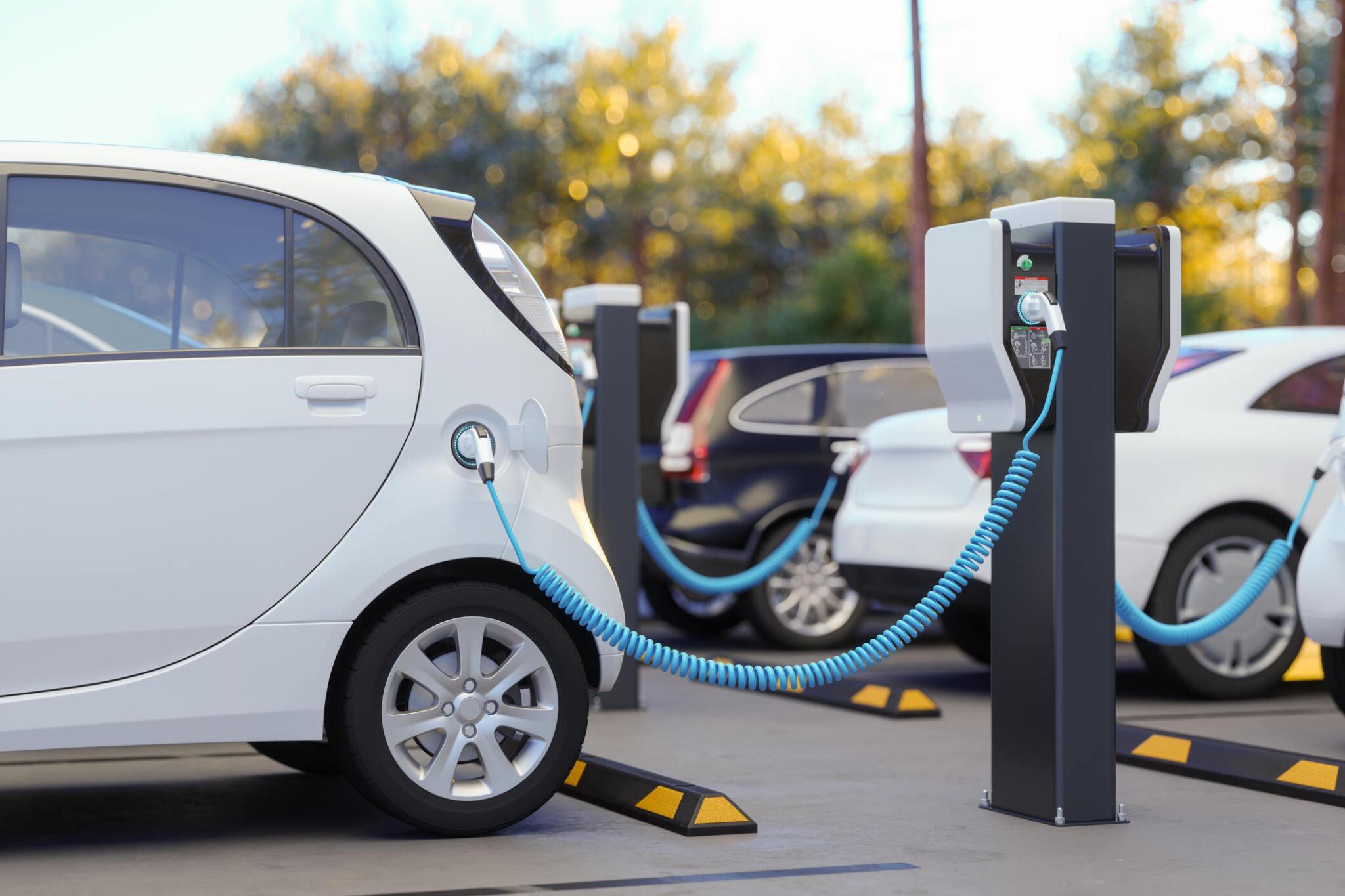
The Future of Electric Vehicle Tires
The rapidly evolving landscape of electric vehicles (EVs) is changing how we drive and how tires are developed and manufactured. The future of EV tires is promising, with industry trends pointing towards innovative solutions that aim to maximize performance, sustainability, and efficiency.
Industry Trends and Developments
- Increasing Demand for Low-Rolling-Resistance Tires: As EV manufacturers continue to seek ways to extend vehicle range, the demand for low-rolling-resistance tires is growing. These tires are critical in improving energy efficiency and are becoming standard in new EV models.
- Focus on Sustainability: The tire industry is pressured to reduce its environmental footprint. This leads to developing tires made with sustainable materials, such as bio-based compounds, recycled materials, and non-aromatic oil compounds.
- Customization for EV Models: Tire manufacturers are increasingly working with EV manufacturers to create model-specific tires that complement the vehicle design for optimized performance.
- Growth in Aftermarket Sales: As the EV market expands, so does the aftermarket for replacement tires. This segment is expected to grow significantly as the first generations of EVs require tire replacements.
Potential Advancements and Innovations
- Smart Tire Technologies: The integration of sensor technology in tires is on the rise. These innovative tires can monitor their condition and road conditions and communicate this data to the vehicle to optimize performance, maintenance, and safety.
- Airless Tires: Airless, or non-pneumatic, tire technology is advancing. These tires promise to eliminate punctures, reduce maintenance, and improve recyclability. They are particularly well-suited to EVs due to their potential for further reducing rolling resistance.
- Energy-Generating Tires: Research into tires that can convert the heat generated from rolling resistance into electrical energy is underway. If successful, this technology could return power to the vehicle, enhancing range.
- Improved Tread Patterns: As noise reduction becomes more critical in the near-silent operation of EVs, manufacturers are experimenting with advanced tread patterns to minimize road noise and enhance comfort.
- Temperature-Adaptive Materials: Innovations in material science may lead to the developing of temperature-adaptive tire compounds that can maintain optimal performance in various weather conditions without changing tires.
- Autonomous Vehicle Compatibility: As autonomous vehicles come to the fore, tires will be designed to meet the demands of self-driving systems. This could include tires with varying stiffness levels to adapt to different driving modes or tires optimized for stationary periods.
The future of EV tires is a fusion of environmental considerations, technological innovation, and an increased focus on the unique requirements of electric mobility. The tire industry is poised not only to adapt to the changes brought by electric vehicles but also to shape EVs’ efficiency and performance moving forward actively. As these trends and developments unfold, the expectation is that the next generation of EV tires will play an even more pivotal role in the broader transition toward sustainable transportation.
Conclusion & Recommendations
As we reach the end of our comprehensive guide on the best tires for electric vehicles, let’s summarize the key points and give some final recommendations.
Summary of Best Tires for EVs
Electric vehicles have specific tire requirements due to their heavier weight, instant torque, and need for extended range. The best tires for EVs typically offer low rolling resistance to enhance battery range, have a higher load index to accommodate additional weight, and provide noise reduction features for a quieter ride. We’ve explored various tires suitable for different conditions: all-season tires for year-round versatility, performance tires for enhanced handling, winter tires for cold-weather safety, and eco-friendly tires for reduced environmental impact.
Final Recommendations
- Prioritize Low Rolling Resistance: Opt for tires designed explicitly with low rolling resistance in mind to maximize your EV’s range.
- Don’t Overlook Load Capacity: Ensure the tires you choose can handle the additional weight of your electric vehicle without compromising performance or safety.
- Consider Your Climate: If you live in an area with severe winters, investing in quality winter tires is essential for safety and vehicle handling.
- Look to the Future: As tire technology advances, watch for innovative tires with sensors, airless tires, and energy-generating tires.
- Regular Maintenance: Maintain your EV tires with regular inspections, rotations, and pressure checks to prolong their life and maintain the efficiency of your EV.
Choosing the right tires is crucial for your electric vehicle’s safety, efficiency, and performance. With the options available today, there are tires to meet every EV driver’s needs and preferences.
Transition to Tire Easy
Having explored the various options for the best tires for your electric vehicle, you’re now equipped with the knowledge to make an informed decision. But knowledge is only the first step; the next is choosing the choice that best fits your vehicle and driving habits. At Tire Easy, we understand the unique needs of EV drivers and offer a curated selection of top-quality tires designed to enhance the performance of your electric car.
Whether you’re looking for tires that offer longevity, enhanced grip, or superior comfort and efficiency, you’ll find various options to suit your requirements. Our user-friendly platform makes finding and comparing tires simple, ensuring you get the perfect match for your vehicle.
Don’t wait to optimize the performance and efficiency of your electric vehicle. Head to Tire Easy now to browse our selection and purchase the ideal tires for your EV. With our seamless shopping experience, you’re just a few clicks away from finding the ultimate tires that promise safety, durability, and peace of mind.
FAQs
What are EV tires?
EV tires are specifically designed for electric vehicles. They often feature a lower rolling resistance to enhance battery range and reinforced construction to support the additional weight of EV batteries. They are engineered for a quieter ride to complement the reduced noise levels of electric vehicles.
What tires are used on electric vehicles?
Electric vehicles use a range of tires, including all-season, performance, and winter tires, tailored for high efficiency, durability, and the capacity to handle the instant torque and heavier weight associated with EVs.
Do electric vehicles need special tires?
Yes, electric vehicles benefit from special tires designed to handle their unique characteristics, such as heavier weight due to batteries, instant torque delivery, and the need for increased energy efficiency to maximize driving range.
Do EV Tires for cars need special tires?
Special tires for EV cars are recommended to cope with their unique performance characteristics, including increased weight and torque. These tires are optimized for lower rolling resistance, durability, and a quieter ride.
What brands are EV tires?
Several tire brands offer EV-specific tires, including major manufacturers like Michelin, Bridgestone, Goodyear, and Continental. These brands have developed lines such as Michelin Energy Saver A/S and Bridgestone Ecopia, which are geared explicitly towards electric vehicles.
Do EV tires wear out faster?
EV tires can wear out faster if not explicitly designed for electric vehicles, as the higher torque and weight of EVs can lead to increased wear. However, EV-specific tires are made to be more durable to counteract these effects.
Which tire is best for EVs?
The best tire for an electric vehicle depends on the driver’s needs but generally includes those with low rolling resistance for energy efficiency, like the Continental PureContact LS or the Goodyear Assurance WeatherReady for diverse weather conditions.
The best tire for an EV depends on various factors such as driving conditions, climate, vehicle model, and driving habits. However, tires with low rolling resistance, high durability, and noise-reduction features, like the Michelin Energy Saver A/S or the Bridgestone Ecopia EP422 Plus, are often recommended for EVs.





